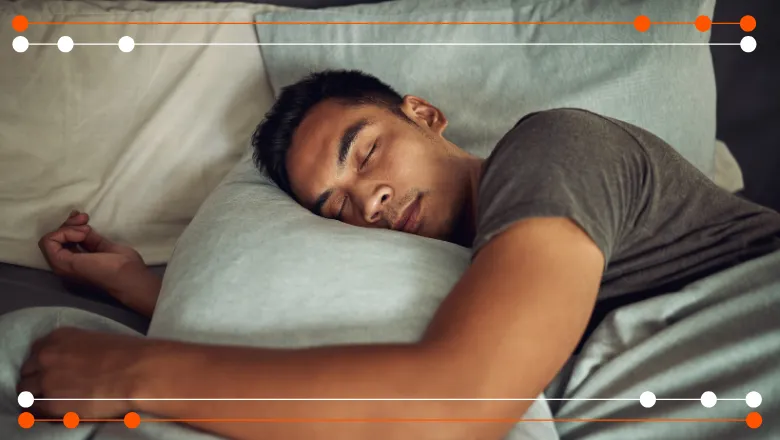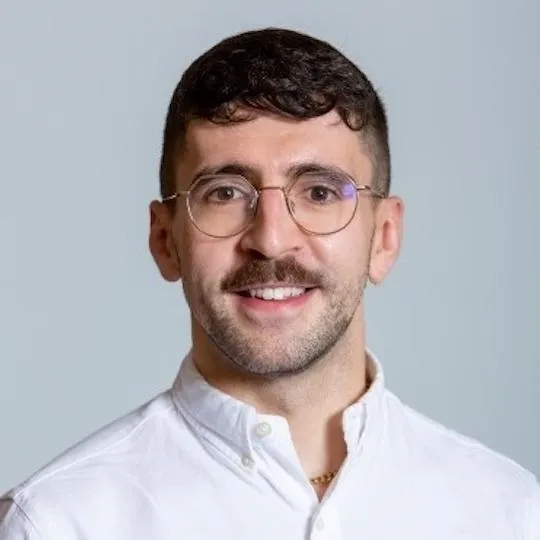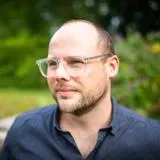Sleep is a fascinating subject to research, not only for what it is but also for what it could mean for the delivery of therapies in the future. Through this research, we want to go beyond understanding the relationship between memory and sleep - we also want to explore the potential of clinical techniques that can treat patients while they sleep, which could in the future be made low-cost and portable to be used at people's homes.
Dr Ines Violante, Senior Lecturer in Healthcare Engineering at the School of Biomedical Engineering & Imaging Sciences
29 November 2024
£1.8 million awarded to Dr Ines Violante for further research on sleep and memory
Senior Lecturer at the School of Biomedical Engineering & Imaging Sciences Dr Ines Violante, alongside collaborators at the University of Surrey, has been awarded a grant worth £1.8 million from the Biotechnology and Biological Sciences Research Council (BBSRC) to further her research in sleep and memory consolidation and their impact on mental health.

The project aims to further our understanding of how the dialogue between different parts of the brain affects our memory while we sleep.
"For centuries, we have been fascinated by the relationship between sleep and memory - how do we form our memories, and what happens to them as we sleep?
"This process of memory consolidation, where the memories our brain acquires during the day become stable and organised as we sleep, requires interactions between different parts of the brain" explains Dr Violante. "Our main goal is to modulate these interactions through a technique called Temporal Interference Electrical Stimulation, to understand how this impacts brain activity and behaviour function."
The research is especially unique because it aims to target non-invasively regions that are crucial for memory function - such as the hippocampus and the cortex – and record brain activity using a combination of MRI and EEG technologies. "The process of receiving and storing memories requires a network of interaction between different regions that lie deep in the brain, and we have only been able to target these non-invasively for a couple of years now. With this ability, we want to find ways to modulate the activity in specific regions, or the interaction between regions, in order to enhance memory consolidation".
The project will also fill past gaps in research on sleep and memory. Previously, explorations on the subject have either been supported by studies involving patients with electrode implants who are undergoing surgery for epilepsy, therefore constituting a small and unique population, or by animal models, which are hard to directly translate to humans.
It is extremely exciting to work with Dr Violante on this groundbreaking project which will be carried out at the Surrey Sleep Research Centre - the top facility for Sleep Research in the UK. The ability to non-invasively modulate neural activity that occurs deeply in the brain allows us for the first time to selectively perturb memory processing during sleep in healthy individuals. This work will provide unprecedented insight into the fundamental role of sleep in shaping memories. It will also lay the foundation for the development of targeted treatments for memory disorders such as Alzheimer’s disease.
Dr Ullrich Bartsch, Lecturer in Sleep and Neurodegeneration at the University of Surrey
Dr Violante's research will involve her affiliation with the University of Surrey, and some research will be based in their dedicated Sleep Research Centre where volunteers from the general public, typically between the ages of 18-40 will be invited to undertake sleep and EEG sessions as part of the study. This will help with the eventual clinical translation of this research into non-invasive therapies that could help patients with mental health conditions such as depression.
Problems with sleep and memory occur across a wide variety of psychiatric and neurological illnesses. They are important, impactful, and related to one another. By using temporal interference stimulation – a safe, non-invasive brain stimulation technique – to understand the brain networks involved in the link between sleep and memory, one day we might be able to target these networks to develop treatments for patients.
Dr Laith Alexander, Academic Clinical Fellow in Translational Psychiatry



